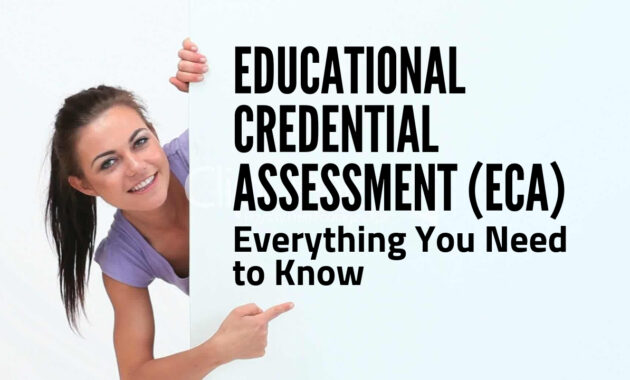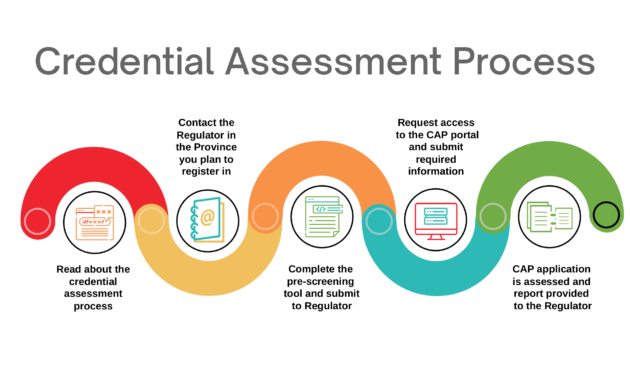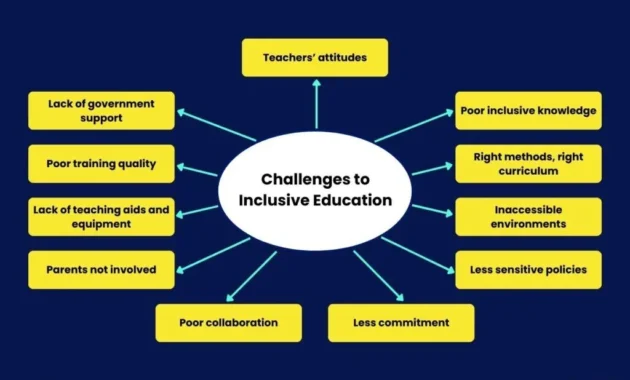Pursuing education or job opportunities in another country often requires verifying academic qualifications. Education Credential Assessment (ECA) is a crucial process that ensures international degrees and diplomas meet the academic standards of the destination country. This guide provides an in-depth look at ECA, its importance, the process, and key considerations for international students.
What is Education Credential Assessment (ECA)?

ECA is a formal evaluation of foreign academic credentials to determine their equivalency to local educational standards. It is often required for:
- University admissions (for students applying to foreign institutions)
- Immigration purposes (for visa applications and residency programs)
- Employment opportunities (to prove qualifications to employers)
Different countries have specific authorized organizations that conduct ECAs based on their own academic frameworks.
Why is Education Credential Assessment Important?

1. Recognizing Foreign Qualifications
Many countries have different education systems, and an ECA helps universities, employers, and immigration authorities understand how a foreign qualification compares to their standards.
2. Required for Immigration
Countries like Canada, the U.S., Australia, and the U.K. often require ECA for work permits, student visas, and permanent residency applications.
3. Ensuring Fair Academic Placement
International students may need an ECA to determine their eligibility for a specific level of education or course exemptions.
4. Improving Employment Opportunities
Many employers require an assessment of foreign degrees to ensure candidates meet the necessary qualifications.
The Education Credential Assessment Process

1. Choosing an Authorized ECA Organization
Each country has designated organizations for credential assessments. Some major ECA agencies include:
- Canada: WES (World Education Services), IQAS, ICES, CES
- United States: NACES, WES, ECE
- Australia: Australian Qualifications Framework (AQF)
- United Kingdom: UK ENIC (formerly NARIC)
2. Gathering Required Documents
Applicants typically need to submit:
- Academic transcripts (original or notarized copies)
- Degree or diploma certificates
- Identification proof (passport or national ID)
- Certified translations (if documents are not in English)
3. Submitting an Application
The process usually involves:
- Creating an online account with the chosen ECA agency
- Uploading scanned copies of required documents
- Paying the assessment fee
- Mailing physical copies if required
4. Assessment and Verification
The organization reviews academic records, verifies their authenticity, and determines equivalency to local standards. This can take anywhere from a few weeks to several months, depending on the agency and the complexity of the evaluation.
5. Receiving the ECA Report
Once the evaluation is complete, the applicant receives an official report that includes:
- Verified educational equivalency
- Any recommendations for further studies or required upgrades
- Recognition status by the relevant institutions
How Long Does an Education Credential Assessment Take?
Processing time varies depending on the agency and country:
- WES Canada: 4-8 weeks
- IQAS (Canada): 6-8 weeks
- UK ENIC: 15-20 working days
- NACES (USA): 4-6 weeks
- Australia (AQF): 8-12 weeks
Delays may occur due to missing documents, high application volumes, or verification challenges.
Cost of Education Credential Assessment
ECA fees differ based on the organization and level of assessment:
- WES Canada: $220 – $325 CAD
- IQAS: $200 – $250 CAD
- UK ENIC: £49 – £140
- NACES (USA): $100 – $300 USD
- Australia (AQF): $300 – $500 AUD
Additional costs may apply for expedited processing, translation services, or document courier charges.
Tips for a Smooth ECA Process
1. Choose the Right ECA Organization
Each agency serves different purposes. Ensure that your selected organization is recognized by the relevant immigration, university, or employment authorities.
2. Verify Document Requirements
Check if the assessment agency requires original documents, notarized copies, or direct submission from your university.
3. Ensure Accuracy in Submission
Errors in application details, missing transcripts, or wrong document formats can cause delays. Double-check everything before submission.
4. Plan in Advance
Since ECA processing times vary, apply at least 3-6 months before your intended study, work, or immigration deadline.
5. Track Your Application
Most agencies provide an online tracking system to monitor progress. Keep a close watch and respond to any document requests promptly.
Common Challenges in Education Credential Assessment

1. Document Verification Issues
Some universities take longer to respond to verification requests, leading to delays.
2. Incomplete Applications
Missing or incorrect documents can lead to rejection or resubmission requirements.
3. Equivalency Discrepancies
Not all foreign degrees receive direct equivalency; some may be assessed at a lower academic level.
4. Long Processing Times
During peak seasons, assessment agencies may take longer than expected to process applications.
Also Read : What Career Opportunities Can A Higher Education Online Programs Provide?
Conclusion
Education Credential Assessment is a critical step for international students seeking to study, work, or immigrate abroad. It ensures that foreign qualifications are recognized and appropriately valued. By understanding the process, choosing the right agency, and preparing necessary documents, students can complete their ECA smoothly and advance toward their academic and career goals.
FAQs
1. Can I use one ECA report for multiple purposes?
Some ECA reports are valid for both academic and immigration purposes, but it depends on the agency. Always check specific requirements before applying.
2. How long is an ECA report valid?
Most ECA reports are valid for 5 years, but validity may vary by country and organization.
3. What if my degree is not recognized?
If an ECA agency does not recognize your qualification, you may need to take additional courses or apply through a different organization for re-evaluation.
4. Do I need an ECA for every degree I have?
Not necessarily. For immigration, you may only need an ECA for your highest qualification. However, universities and employers may require assessments for all degrees.
5. Can I get a refund if my application is rejected?
Most agencies do not offer refunds once processing has begun. Ensure you meet all requirements before submitting your application.